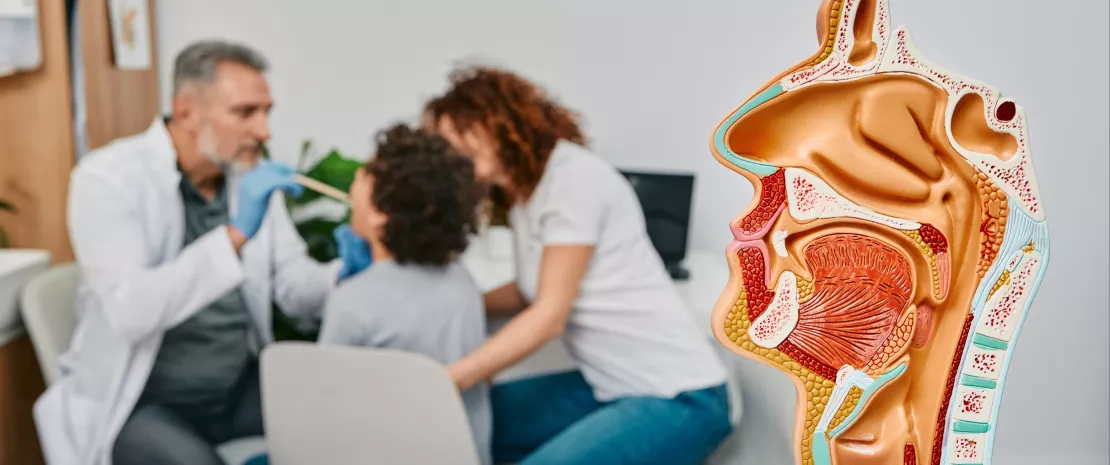Nasal mycobiota responsible for rhinitis and asthma?
According to a new study, young people suffering from chronic respiratory diseases, such as asthma and rhinitis, have an altered nasal mycobiota. This discovery may open the door to innovative treatments.
Lay public section
Find here your dedicated section
Sources
This article is based on scientific information

About this article
While the close link between bacteria in the ENT microbiota and chronic respiratory diseases is now well documented, little is known about the role fungi play in these disorders. Studies have shown that fungal communities play a role in asthma, but few have looked specifically at the fungi present in the nasal cavities.
Researchers at the University of Porto in Portugal 1 decided to take a closer look by comparing the nasal mycobiota of people suffering from allergic rhinitis and/or asthma with that of healthy people. To do so, they took nasal samples from 339 Portuguese children and young adults divided into four groups based on their health status:
- allergic rhinitis (47 people)
- allergic rhinitis and asthma (155 people)
- asthma (12 people)
- no respiratory disease – control group (125 people)
Significant difference in fungal environment
The scientists then determined the taxonomic composition, interactions, functional diversity, and metabolic pathways of the fungi using next-generation sequencing techniques.
In all participants, they found 14 different genera of fungi belonging to two families, Ascomycota and Basidiomycota. Among these genera, fungi such as Aspergillus, Candida, and Penicillium, known to be allergens or opportunistic pathogens, were identified. According to the researchers, this proves that the nasal passages are a major reservoir of agents capable of causing allergic rhinitis or asthma.
They also found that the nasal mycobiota of participants suffering from respiratory diseases differed significantly from that of the control group, presenting richer and more diversified fungal communities. Differences between the various patient groups were, on the other hand, minimal.
Furthermore, the fungal interaction networks were also more complex and connected in the patient groups, particularly in the case of a combination of rhinitis and asthma, which suggests an influence of fungi on the immune environment of the nose.
Breastfeeding slows maturation of nasal microbiota, protecting against asthma
According to a recent study 2 on more than 2,000 children under the age of one, exclusive breastfeeding for more than three months supports a gradual maturation of the child’s gut and nasal microbiota. This slow, step-by-step colonization of the mucous membranes by bacteria is thought to protect the baby from respiratory infections and reduce the risk of asthma. On the other hand, weaning too early is thought to promote the premature acquisition of certain microorganisms, such as Ruminococcus gnavus, the presence of which is linked to an increased risk of asthma.
Therapeutic targets in sight
One interesting finding was that in the mycobiota of people suffering from both asthma and rhinitis, three metabolic pathways were particularly abundant. They relate to the production of 5-aminoimidazole ribonucleotide (AIR), an intermediate for purine biosynthesis involved in energy metabolism and DNA synthesis. The researchers believe AIR may be a future therapeutic target for the diagnosis and treatment of allergic respiratory diseases.
But before considering new therapies, further research aimed at gaining a better understanding of the role played by fungi in respiratory inflammation is required. This should involve longitudinal studies that include several samples over time and better consideration of variables specific to patients, e.g. severity of the disease, treatments, etc.












